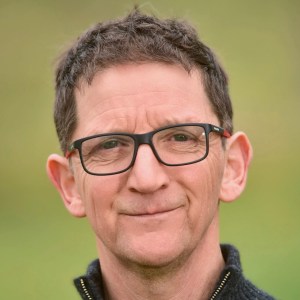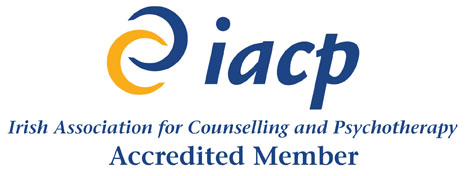
I am a qualified and accredited psychotherapist living in North Tipperary. I have therapy rooms in Nenagh and Cloughjordan and provide counselling to clients from Limerick, Birr, Roscrea, Portumna, Thurles and other nearby locations in Tipperary, Limerick, Offaly, Clare and Galway. In addition I provide online counselling and psychotherapy via the internet or by phone.
I work mainly via the evidence based, solution focussed approach of Cognitive Behavioural Therapy (CBT)
I am also a qualified Buteyko Breathing Instructor. Breath training in conjunction with counselling can be very effective for relieving the symptoms of anxiety, panic attacks and depression. The technique can also reduce the symptoms of physical ailments including asthma, COPD, insomnia and sleep apnea.
Why might you consider counselling?
I believe that counselling is about providing a safe, supportive and confidential environment in which you can acknowledge difficult and unpleasant feelings, recognise unhelpful patterns of behaviour and come to terms with troublesome life-situations. I can help you to explore, understand and resolve the issues that are compromising your ability to live a full, satisfying and happy life.
My approach
Counselling is no different to any other service that you pay for; I believe that you are entitled to be fully informed, involved and empowered. As we explore the issues that have led you to seek help we will set goals and identify steps along the way that will show that we are on track. In doing so we are creating a plan of action that we can use to check-in and monitor progress.
My training
I have an honours degree in Integrative Counselling and Psychotherapy. This means I have a comprehensive grounding in traditional theory, skills and values.
In addition, my training had a significant focus on the emerging field of interpersonal neurobiology. It is no exaggeration to say that this is revolutionising the practice of counselling and psychotherapy. As we come to understand how brain and body function in an integrated manner, we understand that it is a lack of integration that expresses itself via the unpleasant and debilitating personal and interpersonal issues that cause us to seek help. For me therapy can therefore be viewed as a process of re-establishing and enhancing the integration between mind and body, head and heart, self and other. During our sessions we can employ scientifically proven tools and techniques to achieve this. My additional training as a Buteyko Breathing Instructor is a prime example of one such technique that can empower you to make changes to improve your well-being.
I also have a degree in engineering. Whist this is may not seem directly applicable or relevant to counselling, I believe that my grounded, evidence-based, ‘no-nonsense’ approach forms a solid base from which to provide empathic, caring support.
But am I the right counsellor for you?
Successful counselling requires a trusting relationship. The best way to see if working together will work for you is for us to have an initial session. I understand that making that first move to contact a counsellor can be difficult and I therefore guarantee you a friendly, supportive, non-challenging introduction where we will take a broad look at your issues and how we might work together. If this does not feel ‘right’ I may be able to recommend other therapists or other courses of action for you to consider. For an initial chat please contact me.
Counselling or Psychotherapy?
What’s the difference? Which do you need?
In many ways it’s a shame that we have two words for what is essentially the same process. I view them as part of a wide range of approaches that can be applied to your specific needs:
Issues that cause people to seek help are often about adapting to life’s inevitable challenges: For issues such as bereavement, relationship upheaval or financial worries, the appropriate treatment may be a counselling approach that explores your situation and importantly the role of the underlying feelings and emotions that are causing your distress. Cognitive Behavioural Therapy (CBT) is probably the best known and most researched of the many counselling techniques that I am trained in.
However it may be necessary to look at how past experiences are impacting on your ability to function in the present. This is especially true for long-term issues such as depression, anxiety and trauma. My psychotherapy training involved an in-depth understanding of the underlying causes to the issues that trouble us and why we seem compelled to repeat unhelpful patterns of behaviour. Whilst this clearly enhances my ability as a counsellor, I believe in visiting the past only to the extent that doing so will help you to resolve the issues that have brought you to therapy.
